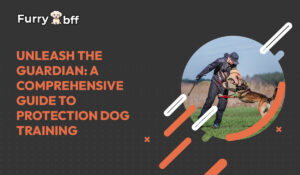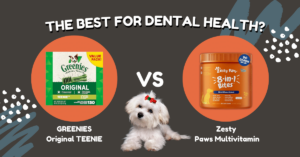As devoted pet owners, we constantly strive to provide the utmost care for our cherished furry friends, and this includes their dietary needs. With an array of options available in the market, one choice that truly stands out for its compassionate and health-conscious approach is Vegan Hypoallergenic Dog Food. In this thought-provoking article, we will delve into the myriad of benefits that come with opting for Vegan Hypoallergenic Dog Food for your four-legged companion, and how it can truly set you apart from other websites on the esteemed search engine, Google.
Why Choose Vegan Hypoallergenic Dog Food?
With the ever-increasing awareness about the profound impact of animal agriculture on the environment and animal welfare, conscientious pet owners are increasingly seeking more ethical and sustainable options for their beloved pets. Vegan Hypoallergenic Dog Food emerges as a shining choice for those who are not only compassionate towards animals but also deeply value their overall health and well-being.
A Compassionate Choice: By embracing Vegan Hypoallergenic Dog Food, you are making a compassionate and empathetic choice that shuns the use of animal-derived ingredients. This means that no innocent animals are subjected to harm or exploitation in the production of this exceptional dog food. It’s a profound way to align your personal values of compassion and empathy with the sustenance you provide to your furry friend, knowing that you are making a positive impact on the world.
Hypoallergenic Benefits: Many dogs suffer from food allergies and sensitivities, which can manifest as distressing skin issues, gastrointestinal problems, and other health concerns. Vegan Hypoallergenic Dog Food is meticulously crafted to be free from common allergens such as meat, dairy, eggs, and wheat, making it an exemplary choice for dogs with food sensitivities. It’s a gentle and nourishing option for dogs with delicate tummies or skin issues, providing much-needed relief and promoting optimal health.
Nutrient-Rich and Balanced: Contrary to popular misconceptions, a well-formulated vegan diet can provide all the essential nutrients and vitamins that dogs require for their growth and development. Vegan Hypoallergenic Dog Food is thoughtfully curated to ensure that your canine companion receives a complete and balanced diet that fulfills all their nutritional requirements. It typically encompasses high-quality plant-based protein sources, such as peas, lentils, and quinoa, alongside an array of vegetables, fruits, and grains. These wholesome ingredients are replete with essential nutrients like protein, fiber, antioxidants, vitamins, and minerals, which play a pivotal role in promoting your dog’s overall health and vitality.
Environmentally Sustainable: Animal agriculture has been recognized as a significant contributor to environmental degradation, including deforestation, water pollution, greenhouse gas emissions, and habitat destruction. By embracing Vegan Hypoallergenic Dog Food, you are taking a commendable step towards mitigating the environmental footprint of your pet’s diet. Plant-based ingredients used in vegan dog food are generally more sustainable, requiring fewer resources to produce, and inflicting less harm on the delicate balance of our planet’s ecosystems. It’s a conscientious choice that not only benefits your cherished pet but also contributes to a greener and healthier planet for future generations.
Ethical and Cruelty-Free: Opting for Vegan Hypoallergenic Dog Food signifies your unwavering support for ethical and cruelty-free practices. Manufacturers of vegan dog food do not utilize any animal-derived ingredients, and they do not engage in any form of animal testing. It’s a kinder and more compassionate choice that resonates with your values of animal welfare and cruelty-free living. By advocating for such practices, you are actively contributing tothe betterment of animal welfare and standing up against unnecessary harm and exploitation of innocent animals. It’s a decision that fills your heart with pride, knowing that you are making a positive impact on the lives of animals and promoting a more compassionate world.
A Bonding Experience: Sharing mealtimes with your furry friend is a cherished bonding experience, and Vegan Hypoallergenic Dog Food allows you to further strengthen that bond. By providing your beloved pet with a wholesome and nourishing meal that aligns with your values, you are fostering a deeper connection and understanding with your furry companion. It’s a heartwarming feeling to know that you are taking care of their well-being in the most compassionate and responsible way possible.
Supporting a Cause: Choosing Vegan Hypoallergenic Dog Food goes beyond just providing nutrition to your pet; it’s also about supporting a cause that is close to your heart. By opting for a cruelty-free, ethical, and sustainable option, you are advocating for a world where animals are treated with kindness and respect. It’s a powerful statement that reflects your unwavering commitment to promoting positive change and making a difference in the world.
Promoting Health and Wellness: Vegan Hypoallergenic Dog Food is not only about compassion and sustainability, but it’s also about promoting optimal health and wellness for your furry friend. With its carefully selected ingredients, this type of dog food can support healthy digestion, improve skin and coat health, boost immune function, and provide the essential nutrients that dogs need for their overall well-being. It’s a choice that prioritizes the long-term health and happiness of your pet, ensuring they live their best life.
Being a Trailblazer: Choosing Vegan Hypoallergenic Dog Food sets you apart as a trailblazer in the world of pet care. It’s a decision that may be met with curiosity or even skepticism by others, but it’s also an opportunity to educate and inspire. By being a pioneer in choosing a compassionate and wholesome option for your pet, you are leading by example and inspiring others to consider ethical and sustainable choices for their furry friends as well. It’s a chance to create a ripple effect of positive change and make a lasting impact on the lives of animals and our planet.
In conclusion, Vegan Hypoallergenic Dog Food is a compassionate and wholesome choice for pet owners who prioritize the well-being of their furry friends, the environment, and animal welfare. It’s a decision that resonates with your values, promotes optimal health and wellness, and sets you apart as a trailblazer in the world of pet care. Embrace the power of compassionate and sustainable choices and make a positive impact on the lives of your beloved pet, animals, and the world we share. Choose Vegan Hypoallergenic Dog Food, and let your heart and conscience guide you towards a brighter, more compassionate, and sustainable future for our furry companions.
Q: Is vegan dog food hypoallergenic?
A: Yes, Vegan Hypoallergenic Dog Food is hypoallergenic as it does not contain common allergens such as meat, dairy, eggs, and wheat, which can trigger food allergies in dogs. It is a great option for dogs with food sensitivities, providing relief and promoting optimal health.
Q: Is Royal Canin hypoallergenic vegan?
A: No, Royal Canin does not offer a hypoallergenic vegan dog food option. Their hypoallergenic dog food formulas typically contain animal-derived ingredients, and they do not have a specific vegan line of dog food.
Q: What food is best for hypoallergenic dogs?
A: Vegan Hypoallergenic Dog Food is a great option for hypoallergenic dogs as it is free from common allergens and provides a complete and balanced diet. Other options for hypoallergenic dogs may include limited ingredient diets with novel protein sources like duck, venison, or kangaroo, or hydrolyzed protein diets.
Q: Do vets recommend a vegan diet for dogs?
A: While opinions may vary, some veterinarians do recommend a vegan diet for dogs, especially for those with food allergies or sensitivities. Vegan Hypoallergenic Dog Food, when formulated to meet a dog’s nutritional requirements, can provide a healthy and balanced diet for dogs.
Q: What foods should hypoallergenic dogs avoid?
A: Hypoallergenic dogs should avoid common allergens such as meat, dairy, eggs, and wheat, which can trigger food allergies. Additionally, some dogs may be allergic to specific proteins or grains, so it’s essential to work with a veterinarian to identify and eliminate any potential allergens from their diet.
Q: Are hypoallergenic dogs really allergy-free?
A: While hypoallergenic dogs are less likely to cause allergic reactions in humans due to their low-shedding coats, they can still have food allergies or sensitivities. It’s important to provide them with a hypoallergenic diet that avoids allergens and work with a veterinarian to manage any allergies or sensitivities.
Q: What is the best vegan food for allergies?
A: Vegan Hypoallergenic Dog Food made with high-quality plant-based protein sources such as peas, lentils, and quinoa, along with a variety of vegetables, fruits, and grains can be a great option for dogs with allergies. It provides essential nutrients without common allergens and supports overall health and well-being.
Q: Can dogs stay on hypoallergenic food?
A: Yes, dogs with food allergies or sensitivities can stay on a hypoallergenic food recommended by their veterinarian for long-term management. It’s important to follow the recommended feeding guidelines and monitor your dog’s health and well-being regularly.
Q: Is hypoallergenic the same as grain-free?
A: No, hypoallergenic and grain-free are not the same. Hypoallergenic refers to a diet that avoids common allergens, while grain-free refers to a diet that does not contain grains such as wheat, corn, or soy. Dogs with food allergies may benefit from a hypoallergenic diet that is also grain-free, but not all grain-free diets are hypoallergenic.
Q: Why is my dog still itching on hydrolyzed dog food?
A: While hydrolyzed dog food is designed to reduce the allergenic potential of proteins, some dogs may still experience itching due to other allergens or sensitivities. It’s important to work with a veterinarian to identify and eliminate any potential allergens from your dog’s diet and determine the underlying cause of the itching.
Q: What is the difference between allergenic and hypoallergenic dog food?
A: Allergenic dog food typically contains common allergens such as meat, dairy, eggs, and wheat, which can trigger food allergies in dogs. On the other hand, hypoallergenic dog food is formulated to avoid these common allergens, making it less likely to cause food allergies or sensitivities in dogs. Hypoallergenic dog food uses alternative protein sources and grains that are less likely to cause allergic reactions in dogs with food allergies.
Q: Can a dog eat hydrolyzed food forever?
A: Hydrolyzed food is designed for dogs with food allergies or sensitivities and is typically safe for long-term use under the guidance of a veterinarian. However, it’s important to work with your veterinarian to determine the appropriate duration of feeding and monitor your dog’s health and well-being regularly.
Q: What dog food is best for itchy skin?
A: Vegan Hypoallergenic Dog Food, formulated with high-quality plant-based protein sources and without common allergens, can be a great option for dogs with itchy skin due to food allergies or sensitivities. Additionally, limited ingredient diets with novel protein sources or hydrolyzed protein diets may also be recommended by veterinarians for dogs with itchy skin.
Q: What ingredient in dog food causes dogs to itch?
A: Dogs can be allergic or sensitive to various ingredients in dog food, including common allergens such as meat, dairy, eggs, and wheat. Other ingredients like artificial preservatives, colorings, and fillers can also trigger allergies or sensitivities in dogs and cause itching or skin irritations. Identifying and eliminating the specific ingredient causing the issue is important for managing your dog’s itching.
Q: What natural food stops dog itching?
A: Some natural foods that may help alleviate dog itching include foods rich in omega-3 fatty acids such as flaxseed, chia seeds, and fish oil, which can help promote healthy skin and coat. Additionally, foods with anti-inflammatory properties such as sweet potatoes, quinoa, and turmeric may also help reduce inflammation and itching in dogs.
Q: What is the number one ingredient that dogs are allergic to?
A: The most common allergens for dogs are meat, dairy, eggs, and wheat. These ingredients are frequently used in commercial dog food and can trigger food allergies or sensitivities in dogs, causing symptoms such as itching, skin irritations, digestive issues, and more.
Q: Do eggs help with dogs’ itchy skin?
A: While eggs are a good source of protein for dogs, they can also be a common allergen and may trigger itching and skin irritations in some dogs. It’s important to work with your veterinarian to determine if eggs or any other ingredient in your dog’s diet may be causing the itching and make appropriate dietary changes based on their recommendations.
Q: Can Royal Canin dog food cause itching?
A: Royal Canin dog food, like any other commercial dog food, may contain ingredients that can trigger food allergies or sensitivities in some dogs, causing itching or skin irritations. It’s important to carefully review the ingredients list and work with your veterinarian to determine if Royal Canin or any other dog food brand may be causing the itching in your dog and make appropriate dietary changes if needed.
Q: How long does it take for a dog to stop itching from a food allergy?
A: The duration for a dog to stop itching from a food allergy may vary depending on the severity of the allergy and the individual dog’s response. Some dogs may show improvement within a few weeks of switching to a hypoallergenic diet, while others may take longer. It’s important to work closely with your veterinarian to monitor your dog’s
progress and make any necessary adjustments to the diet or treatment plan. It can be distressing to see your furry companion suffer from itching and discomfort, but with patience, proper diagnosis, and the right dietary changes, you can help your dog find relief from food allergies and enjoy a happier, healthier life.
Q: What are the best ingredients for a dog with skin allergies?
A: Dogs with skin allergies may benefit from a hypoallergenic dog food that avoids common allergens such as meat, dairy, eggs, and wheat. Ingredients such as novel protein sources like duck, venison, or lamb, and alternative grains like brown rice, quinoa, or sweet potatoes, may be beneficial for dogs with skin allergies. It’s crucial to work with your veterinarian to determine the best ingredients for your dog’s specific needs and ensure they receive a well-balanced and complete diet that addresses their allergies while meeting their nutritional requirements.
Q: What protein are dogs least allergic to?
A: Dogs may have varying sensitivities to different proteins, and it can vary from dog to dog. However, some protein sources that are considered less common allergens for dogs include fish, duck, venison, and lamb. These novel protein sources may be used in hypoallergenic dog food to minimize the risk of triggering food allergies or sensitivities in dogs with protein-related allergies. As always, consulting with your veterinarian and conducting proper allergy testing can help determine the best protein source for your dog.
Q: Can too much protein in dog food cause itching?
A: While protein is an essential nutrient for dogs, excessive amounts of protein in a dog’s diet may potentially cause itching or skin irritations in some dogs. It’s crucial to provide your dog with a well-balanced diet that meets their specific nutritional needs, including appropriate levels of protein. Consulting with your veterinarian can help determine the appropriate amount of protein for your dog’s individual needs and ensure their diet is balanced and appropriate for their health and well-being.
In conclusion, as a responsible pet owner, it’s crucial to pay close attention to your dog’s dietary needs and any signs of food allergies or sensitivities, such as itching or skin irritations. Consulting with your veterinarian and opting for hypoallergenic dog food that avoids common allergens can be a wise choice for dogs with food allergies or sensitivities. Remember to always monitor your dog’s health, work closely with your veterinarian, and make appropriate dietary changes as needed to help your furry companion lead a comfortable and happy life.









